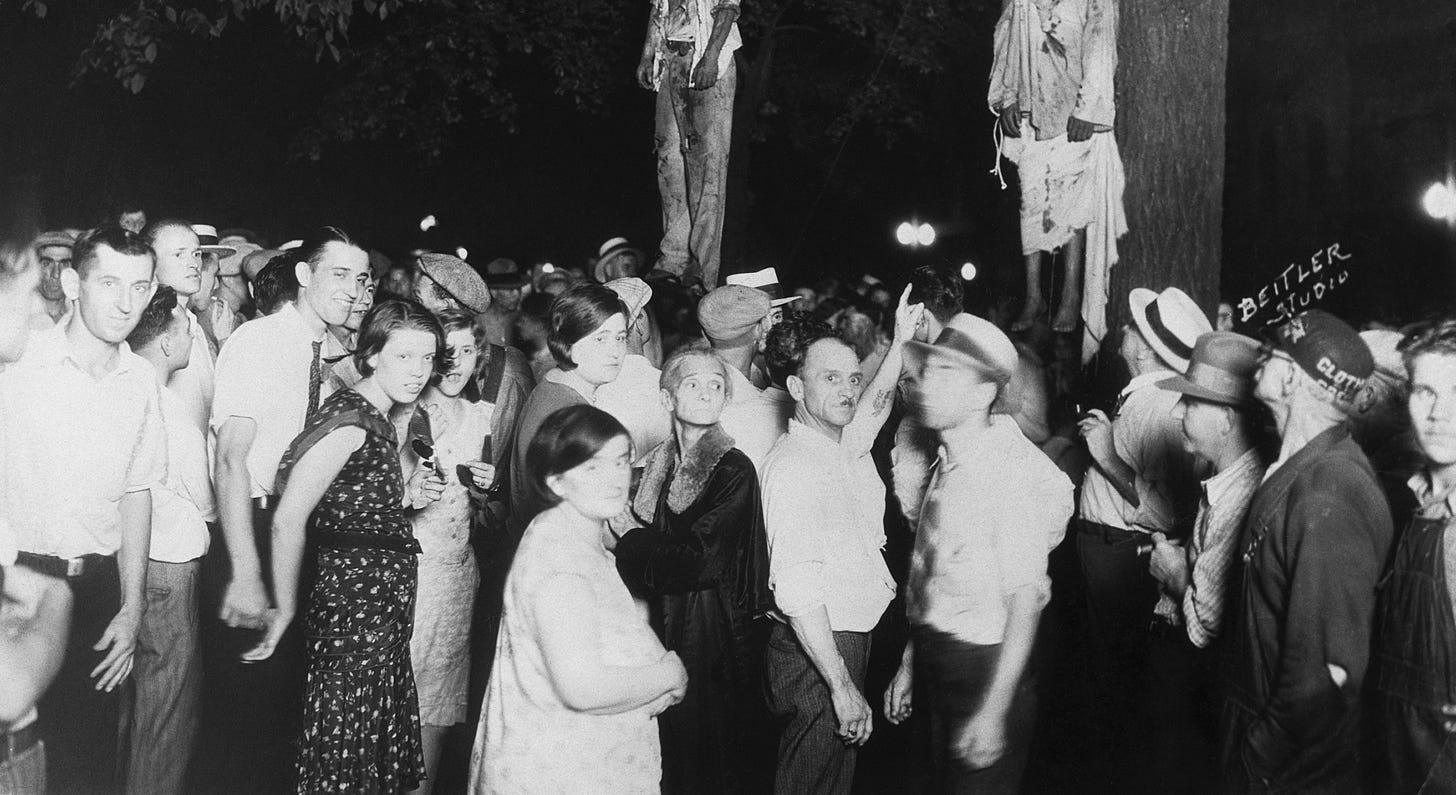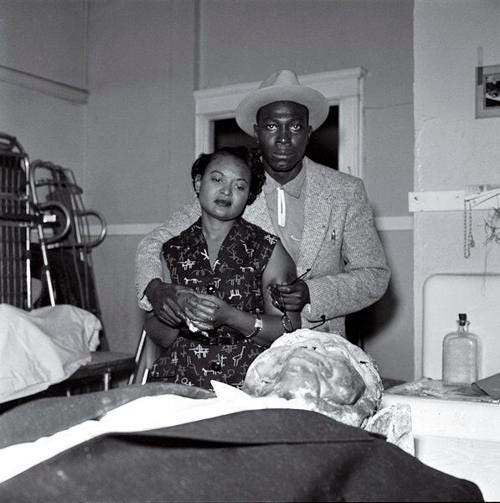12 jurors...11 whites...one Black...all sworn to try the case of the State of Georgia vs. Gregory McMichael, 67; his 35-year-old son, Travis McMichael; and their neighbor, William Bryan, 52, each accused of the death of Ahmaud Arbery, 26, last year.
Earlier this morning via text message, three of my old friends (and among the best trial lawyers that I know), Corey Smith, Horace Moore, and Phil Hutchinson, all agreed on the following: "The Fix is in!"
Regrettably, I cannot help but to concur with my boys that the optics of the Arbery jury pool stinks like a rancid bucket of Chittlins that have set unchilled on the back porch for several days.
And yet, the optimist in me, my inner Dr. Pangloss from Voltaire's classic Candide, still hopes this morning that perhaps, just maybe, that the jury will get it right by holding these three men accountable for what can only be described as a modern day lynching. A lynching caught on videotape much in the same way that Jim Crow lynch mobs used to pose with the lifeless, charred, and defiled remains of Black men, women, and children during the Jim Crow era.
As I wrote last week, in the not so distant past, I have won cases before all-white juries, including one murder case that had similarly strong racial overtones. But more often than not, the all-white juries I encountered across rural Florida usually were trying cases involving Black defendants accused of crimes against Black victims—not whites— thus those juries considerations had little to do with the illusory phrase that some quixotic pundits have exclaimed ever since Barack Obama was first elected President of the United States 13 years ago today, that we now exist in a "post-racial" era where folks “don’t see color.”
Still, there's something quite disconcerting by the fact that Glynn County, Georgia, venue for the Arbery murder trial, is home to 85,000 residents—26 % of which are Black. And yet, the jury makeup is damned near identical to the Emmett Till murder case, the one in which 12 white men shrugged their shoulders at the overwhelming guilt of Roy Bryant and J.W. Milam and acquitted the pair in a little over an hour; one Till case juror, after the trial, infamously told the press: "it wouldn't have taken that long if we hadn't stopped to drink a soda pop.”
I thought of that Till juror's words this morning as I read the following comments from Arbery trial Judge Timothy Walmsley about defense lawyers eliminating prospective Black jurors: "This court has found that there appears to be intentional discrimination...One of the challenges that I think counsel recognized in this case is the racial overtones..."
Ok… while his Honor clearly sees the obvious racial bias, he still concludes: "all the defense needs to do is provide that legitimate, nondiscriminatory, clear, reasonably specific and related reason" for striking a Black juror. Sigh, such is sad but legally so very true.
Confused?
What Judge Walmsley describes above is one of the more maddening theoretical aspects of jury selection case law that can lead to some tense exchanges when the opposing party is showing a pattern of striking minority jurors but, the chagrined counsel challenges the strikes knowing full well that the "race neutral" burden is easily met with explanations such as "I didn't like the way the Juror A answered my question" or, "Juror B seemed to totally ignore my presentation and yours, your Honor, but was smiling, staring, and nodding in agreement when defense counsel Hobbs presented;" there were many times when I wondered whether the outcome might have been different had the trial judge cut through the fog and called out opposing counsel for their not so hidden agenda?
Still, as the Arbery case moves forward, those of us who desire justice can only hope that this latest predominantly white jury will get it right. What’s tragic is that there are still those among us who don’t concede how diversity matters; in recent years, a racially diverse jury found former police officer Amber Guyger guilty for killing Botham Jean in his apartment and, a few months ago, a racially diverse jury found former police officer Derek Chauvin guilty of murdering George Floyd.

In fact, several Chauvin jurors have stated that the videotape evidence of Floyd’s final nine minutes on Earth was so compelling that his race didn't matter, so perhaps the Arbery jury that will soon see Arbery's desperate flight for his life—and final moments as he was shot multiple times—will draw similar conclusions?
Who knows? But what I do know is that it is a shame that I can't shake those nagging reminders of Emmett Till or, in more recent years, Rodney King, Martin Lee Anderson, and Trayvon Martin—and fear that Arbery's tormentors will walk free in the same way that their tormentors walked free. That's the reason why so many of my Black lawyer friends are equally triggered by the fact that 11 whites and only one Black will soon try what should be an open and shut case of guilt—all the while knowing that race very well will matter in this small South Georgia courtroom.
Stay tuned…
Thank you for subscribing to the Hobbservation Point—have a wonderful Thursday!









I believe that the pendulum has swung so wildly back to the right (or maybe it has always been stuck there and true justice has been an anomaly) that these men will walk free as will Kyle Rittenhouse in Wisconsin.
After I read the make up of the jury, my hope for justice fell.